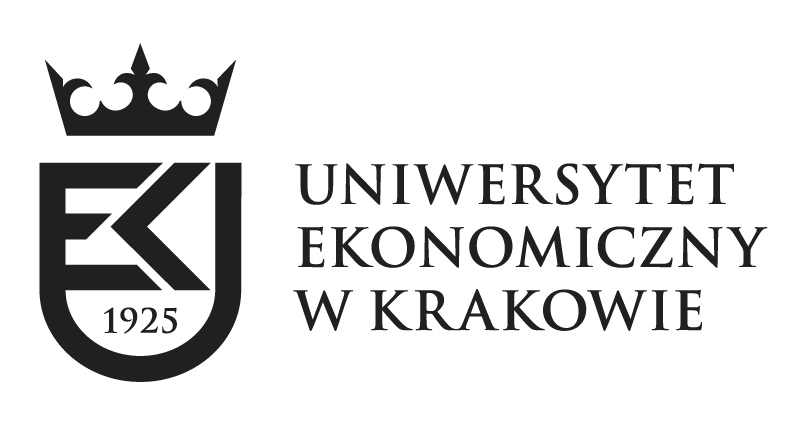1. Legalisation of foreign documents of education
Legalisation is the certification of a document’s formal conformity with the law binding in the place of its issue or of the authenticity of the seals and signatures placed on the document. Legalisation of a document by the relevant authorities in the country in which it was issued increases its credibility.
- A. Legalisation with Apostille
If a country in which a given document was issued is a party to the Convention Abolishing the Requirement of Legalisation for Foreign Public Documents, concluded in The Hague, the document’s legalisation is replaced by an Apostille certificate attached to it. The list of countries – parties to the Convention and the institutions authorised to issue the Apostille is available here. - B. Normal Legalisation
If a country in which a given document was issued is not a party to the aforementioned Convention, the document’s legalisation remains the responsibility of a Polish consular office in that country. Depending on the type of a document, Polish consular offices will use one of the three categories of legalisation clauses: full legalisation, standard legalisation, authentication. - More information about legalization or apostille is available here.
- The list of Poland’s missions abroad is available here.
2. Translation by a sworn translator
All official documents issued abroad should be translated into Polish by:
- a Polish sworn translator registered on the list of translators published by the Ministry of Justice of the Republic of Poland. The list of Polish sworn translators may be found here.
- the consul of the Republic of Poland in the country in which documents were issued
- a person registered as a sworn translator in an EU member state, an EFTA member state, an EOG member state, or an OECD member state.
- an accredited diplomatic representative to Poland, or the consular office of the country in whose territory, or within whose educational system the documents in question were issued.
3. Recognition of secondary-school certificate
Enrollment for the 1st degree studies is carried out on the basis of graduation certificate of secondary education (foreign certificates can be recognized by law or on the basis of a proper international agreement or the decision of recognition issued by the Board of Education in Poland). Secondary education and entitlement for enrollment for studies in Poland are confirmed by:
- Certificates and other documents issued by school or educational institution functioning in the education system of European Union member countries, Organization for Economic Co-operation and Development (OECD) member countries, European Free Trade Association (EFTA) member countries – parties of the agreement of European Economic Area (EEA), which enable enrollment for studies in this countries. It applies for certificate of secondary education in the following countries: Australia, Austria, Belgium, Bulgaria, Canada, Chile, Croatia, Cyprus, Czech Republic, Denmark, Estonia, Finland, France, Germany, Greece, Great Britain, Hungry, Iceland, Ireland, Israel, Italy, Japan, Korea, Latvia, Lichtenstein, Lithuania, Luxemburg, Malta, Mexico, the Netherlands, New Zealand, Norway, Portugal, Romania, Slovakia, Slovenia, Spain, Switzerland, Sweden, Turkey, USA.
- Certificates IB (International Baccalaureate) issued by the International Baccalaureate Organization in Geneva.
- Certificates EB (European Baccalaureate) issued by the European Schools, according to the Convention defining the Statute of the European Schools, issued in Luxemburg on 21st of June 1994 (Journal of Laws from 2005, No 3, item 10).
- Certificates included in the international agreements: https://www.gov.pl/web/nauka/umowy-dwustronne-dotyczace-uznawalnosci-wyksztalcenia
The Candidate who does not possess any of the above mentioned documents is obliged to make an official recognition (“nostryfikacja”) of his/her secondary-school certificate.
The “nostryfikacja” is done by the Board of Education, more information you will find at: https://kuratorium.krakow.pl/recognition-of-certificate-issued-abroad-2/
4. Procedure of recognition of the document
Recognition certificates were issued by the Board of Education to 30th of March 2015, now the Board of Education issues the decisions of recognition of the document issued abroad. More information about the Recognition of Academic Qualifications may be found:
- on the website of the Polish Ministry of Science and Higher Education: https://nawa.gov.pl/en/recognition/recognition-for-academic-purposes
- on the ENIC-NARIC network website: http://www.enic-naric.net/
5. Health insurance
All foreign students should have an insurance policy for sickness and accident in Poland. Such a policy should cover at least the first year of studies, amounting to 30,000 EUR for medical treatment throughout the insured period.
In the case of the holders of the Card of the Pole or a permanent residence permit or the decision confirming Polish descent, an NFZ premium can be paid by the university. For this purpose, they should contact Office for Scholarships and Medical Insurance (Biuro Stypendiów i Ubezpieczeń Zdrowotnych), Main Building, room 215 (second floor).
An insurance policy can be confirmed in the following way:
- an insurance policy with Narodowy Fundusz Zdrowia NFZ, ul. Wadowicka 8W Kraków (the National Health Fund)
Persons who are not holders of the Card of the Pole may sign a contract with Narodowy Fundusz Zdrowia and make premium payments on their own. A copy of a contract along with payment confirmations should be submitted to Unit for Teaching Administration (Dział Nauczania).
NOTE! To sign a contract with NFZ (the National Health Fund), a student needs the following documents: a certificate confirming admission to studies, PESEL number, a document confirming a student’s residence (e.g. a residence hall).
Prior to a visit to Narodowy Fundusz Zdrowia, please check what documents are required for applying for an insurance policy. The necessity to check required documents applies, in particular, to persons under age! http://www.nfz.gov.pl/dla-pacjenta/zalatw-sprawe-krok-po-kroku/jak-ubezpieczyc-sie-dobrowolnie/ - An insurance policy covering the costs of medical treatment in Poland in the amount of 30,000 EUR. An insurance policy issued abroad must be translated into the Polish language.
- A certificate issued by an employer, confirming the payment of a premium.
- European Health Insurance Card (in respect of EU citizens).
6. Legalization of stay
All foreign students who wish to study in Poland are required to legalize their stay.
- The citizens of the EU and Switzerland are only required to register their stay.
- Non-EU foreigners must hold an entry visa or a temporary stay permit.
- Open your account on the Online Candidate Admissions platform (Internetowa Rekrutacja Kandydatów – IRK) at irk.uek.krakow.pl.
- Send to the Unit for Teaching Administration (studiainfo@uek.krakow.pl) the copies of the following documents:
– certificate of graduating from secondary school (secondary education);
– translation of the certificate into the Polish language (if possessed);
– information confirming that the certificate entitles you to undertake studies in the country in which it was issued – it does not apply to documents issued in Ukraine;
– results of the Multitest exam (NMT) – applies only to candidates from Ukraine;
– English certificate;
– a copy of passport (page with a photo). - Make payment of the admission fee (amount and individual account number available on your IRK account).
Please, note:
Make sure you meet qualification requirements – remember that only properly completed and paid-for forms are considered in the admissions process.
After the announcement of the list of candidates eligible for admission, persons expressing their will to undertake studies at the KUE shall submit the following documents:
- Secondary-school certificate (legalised, translated and recognised) – original and copy
- Statutory declaration confirming that the secondary-school certificate entitles the holder to apply for admission to university studies of any kind in the country in which the secondary-school certificate was issued – original and copy – not applicable to certificates issued in Ukraine.
Declaration is not required if the proper information can be found on the graduation certificate of secondary education. - Results of the Multitest exam (NMT) with translation into Polish – applies only to candidates from Ukraine (if possessed) – original and copy
- Decision about recognition (“nostryfikacja”) of secondary-school certificate, issued by the Board of Education in Poland – not applicable to foreign certificates recognised by law or on the basis of a proper international agreement – not applicable to certificates issued in Ukraine
- Proof of English language proficiency: English certificate (original and copy)
- Printout of personal questionnaire – from the Online Candidate Admissions platform
- Printout for the candidate’s file (the document is available in the downloads tab.)
- Copy of passport/ID Card (page with photograph)
- Statement about citizenship (the form is available in the downloads tab.)
- In the case of a person under age – a parent’s or legal custodian’s statement expressing their approval for a legal commitment to the Krakow University of Economics (the form is available in the downloads tab.)
Please, note:
Another person/The Representative may submit documents on behalf of the candidate. In such a case authorisation is required. Form of power of attorney is posted in the downloads tab. and on the Online Candidate Admissions platform (IRK) – Enrollment applications – Documents and further steps. The Representative is obligated to deliver:
- fulfilled form of power of attorney,
- personal ID,
- copy of candidate’s ID/passport,
- all required documents for admission (from Step 2).
In October, admitted persons shall deliver:
- original and copy of visa/residence permit, EU citizens – UE citizen’s registration of stay;
- original and copy of health insurance covering the entire period of studies in Poland or copy of a European Health Insurance Card or insurance from the National Health Fund.
IMPORTANT:
- Student ID Card will be issued after submission of the documents required at the third step.
- If the admission limits for particular full-time programmes are not met, additional recruitment will be carried out in September. The schedule of additional recruitment and available programmes with vacancies will be announced on the university’s website after the first recruitment deadline is closed.
- Qualification does not mean admission. A candidate will be admitted upon submission of the required documents and on condition that secondary school final examination grades entered into the personal questionnaire are consistent with the results calculated on the basis of the certificate submitted at the second step.
- Admission to studies is confirmed by entry to the student’s list, after submitting required documents at the 2nd step. Failure to submit documents required at the 2nd step implies the removal of a candidate from the list of persons qualified for admission.
- Documents required at the Step 2 should be delivered in a special file folder which a candidate receives upon submitting documents.
- A candidate who is a student of the first cycle programme of a given major at the Krakow University of Economics may not apply for admission to the same major programme.



